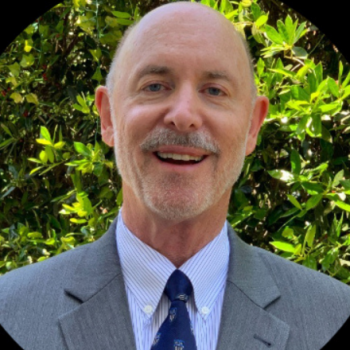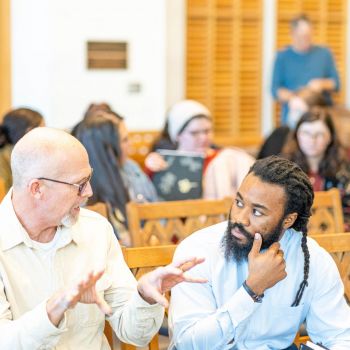Clergy and church leaders are often surprised to find out how much of their time is spent managing staff and volunteers and handling personnel issues. This third course in the Duke Divinity+ Church Administration series connects human resource management to theological principles, and provides real-life examples and case studies of what to do and not do as a manager, all while learning the basics of human resource management in a church-related setting.
Most clergy graduate from seminary or Divinity School without coursework, training, or exposure to church administration, church management, or human resource management. Clergy commonly presume most of their time will be spent preaching, presiding at liturgies, forming their congregation in the Christian faith, ensuring the pastoral care of their congregations, and doing good work for those in need in the community. Church leaders are often surprised to find out how much of their time is spent managing staff and volunteers and handling personnel issues.
This third course in the Duke Divinity+ Church Administration series is designed to enable clergy and lay leaders serving the church in congregational settings or in other church-related venues to develop healthy frameworks and practices for human resource management. While as church leaders you rely first and foremost upon God to successfully perform your ministries, this work is accomplished through human resources—staff and volunteers. It is your responsibility, as one entrusted to minister in God’s name, to steward those human resources in the best manner possible.
In this course, you will connect human resource management to theological principles, and we will provide real-life examples and case studies of what to do and not do as a manager, all while learning the basics of human resource management in a church-related setting.
Instructor

Russell Elmayan earned his M.B.A. from Duke University, his D.Min. from Duke Divinity School, and a Master of Pastoral Studies from Loyola University. In addition to serving as a course instructor for Duke Divinity School, he serves as the chief financial officer/chief operating officer at The Catholic Diocese of Raleigh, N.C.
Elmayan has for-profit and not-for-profit executive-level experience. He has extensive experience presenting to senior management and boards, banking relationships, pension and retirement funds, employee benefits and health insurance, financial planning and analysis, corporate real estate, property and casualty insurance, and coordination of legal counsel. In addition, he has provided oversight for finance, human resources, institutional advancement, property and construction, legal counsel, and charitable outreach.
If you are a Duke alum with a degree from Duke University, you can take this course for free. You will need a Duke OneLink account, and then you will need to log into the Coursera for Duke Alumni portal Link opens in new tab.
If you do not already have a OneLink account, use these instructions to register for an account Link opens in new tab. Please note that after submitting the required information on the OneLink site, you will be emailed a link to complete the process, which expires after 7 days. Please be prompt in visiting that link so you can finish creating your OneLink account within that time frame, or you will have to start over.
Once you have a OneLink account, you can visit the Coursera for Duke Alumni portal Link opens in new tab. You will log in with your OneLink credentials, and then you will be able to search at the top of the page for this course. Once you select the course, select the button that says Enroll for Free.
If you encounter questions, please visit the Coursera for Duke website and use the instructions provided there to ask for help.
